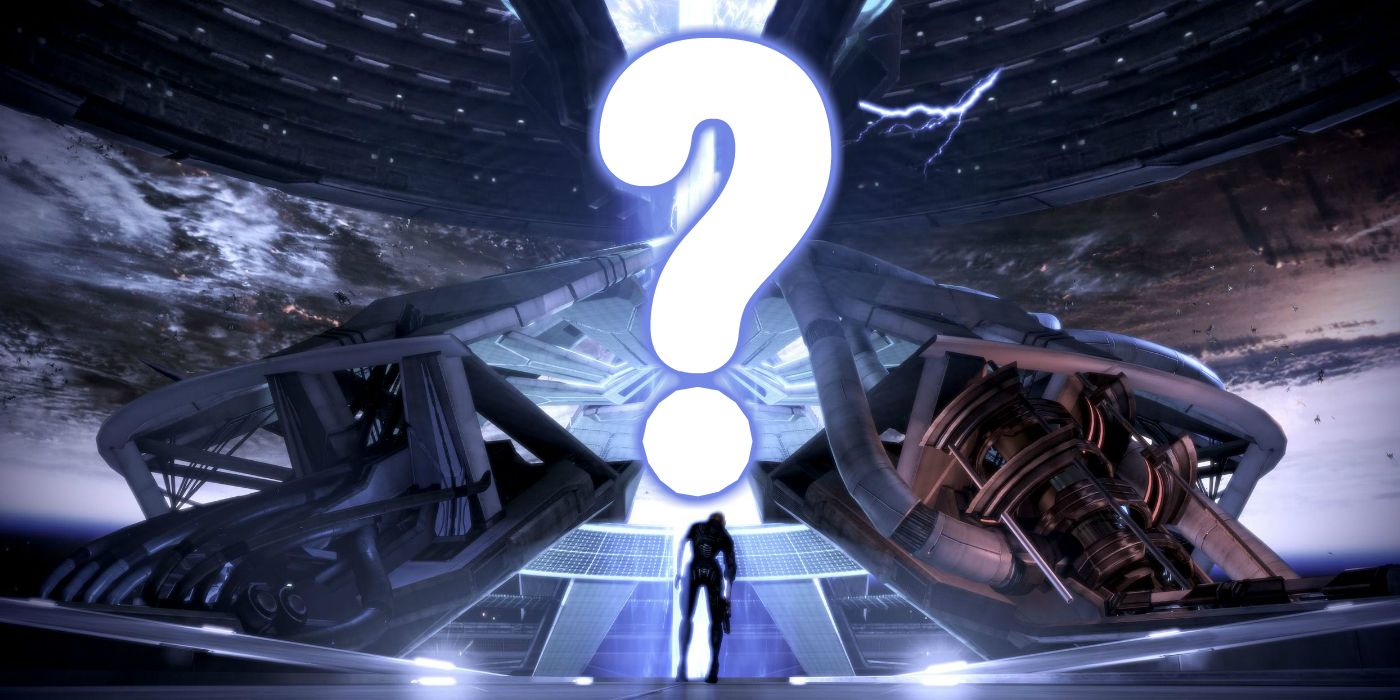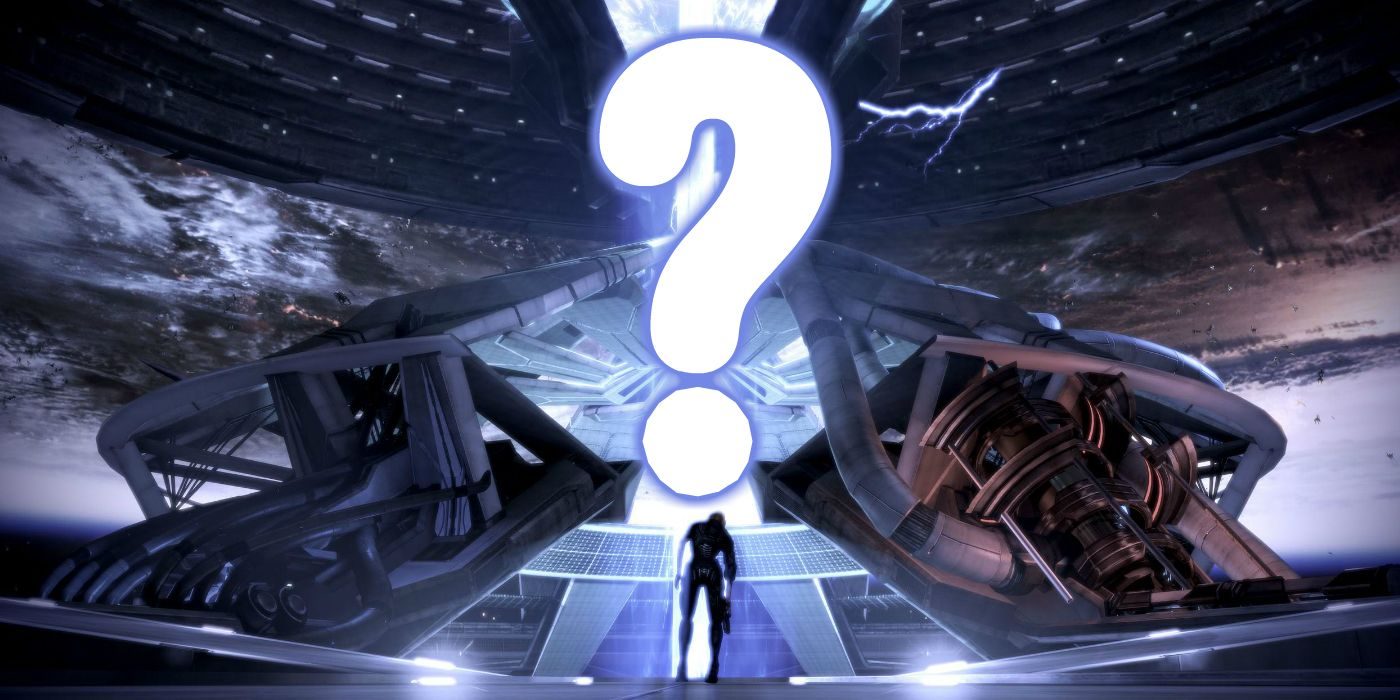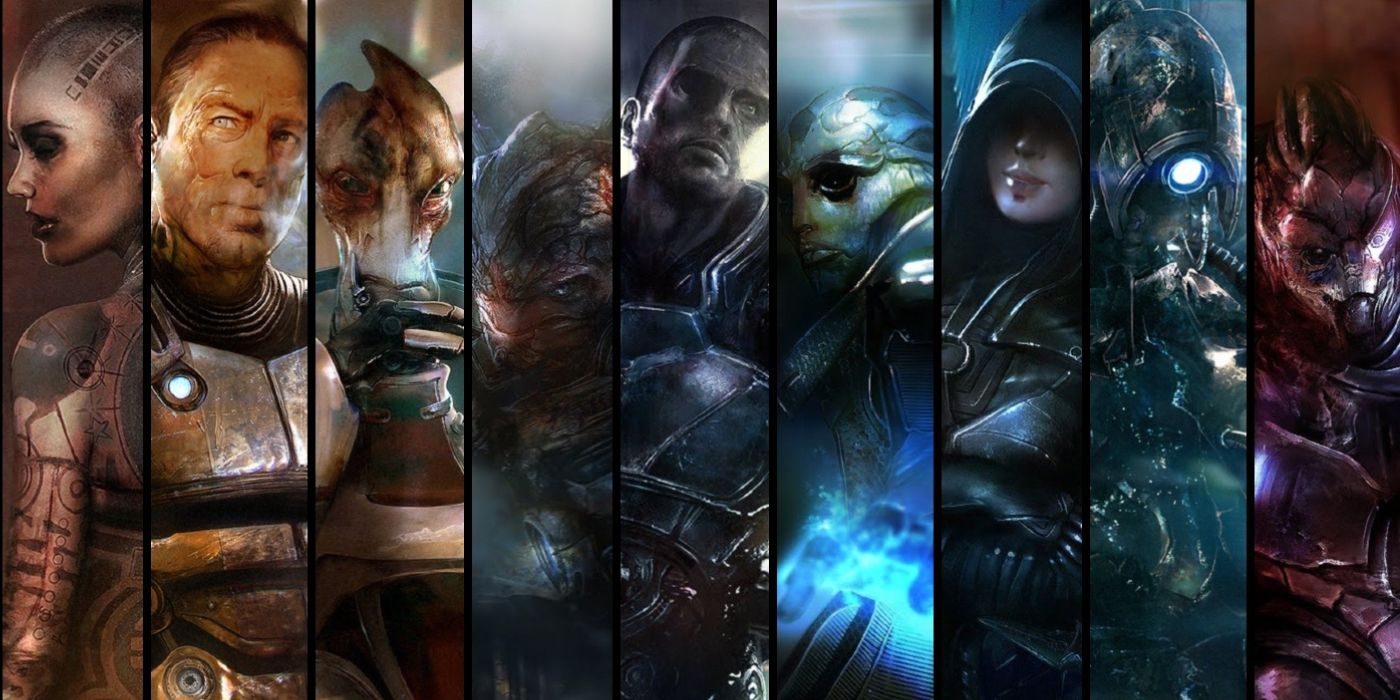

A Mass Effect Remastered Trilogy is looking more likely than ever. Plenty of BioWare fans are looking forward to November 7 in hopes that the studio will formally announce plans for the project on N7 Day 2020, a holiday set aside by fans of the series and named for the military code of the Systems Alliance in Mass Effect.
However, many fans will be wondering if the remaster will address one of Mass Effect’s most controversial plot points. The ending to Mass Effect 3 was widely panned and seen as a disappointing conclusions to an otherwise great trilogy, but tere are some reasons that a new ending to Mass Effect 3 may or may not be likely in the Mass Effect Remastered Trilogy.
RELATED: Mass Effect Remastered Trilogy Predictions and Wish List

Talks of a Mass Effect remaster began in 2014 when BioWare’s general manager at their Edmonton and Montreal Studios, Aaryn Flynn, asked fans of the series on the NeoGaf forums what they would like to see in a remaster.
Naturally, a lot of fans asked for a revision to Mass Effect 3’s controversial ending. The original ending saw Shepherd choose from the Control, Synthesis, and Refusal options to deal with the Reapers. The Control ending saw Shepherd become an AI and take over the Reapers, the Synthesis ending saw organic and synthetic life merge, and the Refusal ending allows the Reapers to reset organic life in the galaxy, as they have done every 50,000 years.
There was already an attempt to patch up the endings. Mass Effect 3: Extended Cut included some new epilogues which tried to tie up the story a little better, while the Citadel DLC served as a light comedic send-off to Shepherd and their squadmates. This makes it appear more likely that the Mass Effect Remastered Trilogy will attempt to restore cut Mass Effect content, and add interactions and opportunities for character development before the ending rather than changing the ending itself.
RELATED: Dragon Age 4 and Mass Effect 5 Should Look to The Witcher 3 in One Big Way

Changing the ending would also come as a very ambitious move at this point, as BioWare approaches nearly 10 years since the end of the original Mass Effect trilogy. Although the ending was unpopular, changing the main story of Mass Effect in any way could prove just as controversial, especially among fans who want the remasters to remain as faithful to the original RPGs as possible.
Indeed, it is likely that the Mass Effect remaster’s development team is extremely cautious of making story changes rather than additions. It is more likely that players will see cut missions restored or BioWare taking advantage of the fact that the remaster would include all of the DLC by default, allowing them to integrate DLC squadmates and other story aspects more neatly into the main plot.
It is possible, however, that BioWare will expand on some of the epilogues and cinematics that occur after the final decision is made at the end of Mass Effect 3. Fans might see more of what became of their squadmates, or at least BioWare might attempt to make the true effects of the different endings on the galaxy feel a little more fleshed out.
If nothing else, the endings are all likely to be more visually impressive than in the original trilogy, which could soften the blow for fans who were hoping to see a revised ending. The extent to which BioWare is willing to change the original trilogy in the name of remastering it, however, remains to be seen. Many Mass Effect fans will be looking forward to N7 Day 2020 in hopes that the remaster and its main features will be revealed soon.
The Mass Effect Trilogy Remaster is reportedly in development.
MORE: Mass Effect 5 Needs to Bring Its A-Game When It Releases



